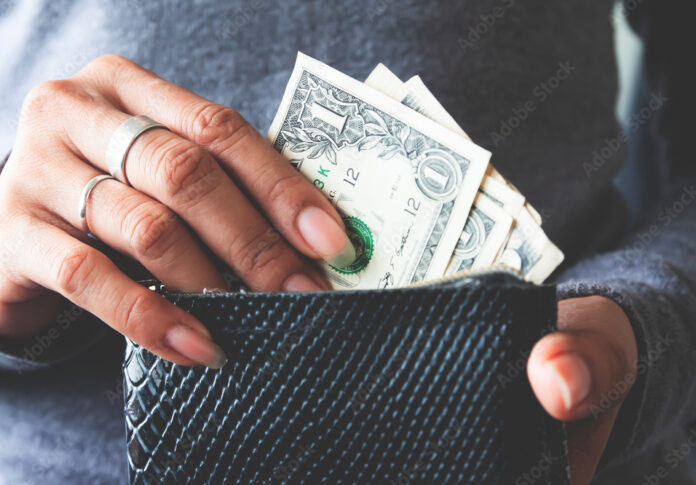
Nice as it is, having a higher salary might not be the key to happiness. An even more important figure linked to life satisfaction is the number sitting in your checking account.
In the study, researchers looked at data from 585 customers at a U.K. bank. That included survey information, like how stressed they were about their finances and how satisfied they were with their lives, along with the balances of their checking and savings accounts.
The amount of easily accessible cash people had predicted how satisfied they were with their lives—a link explained by how comfortable people felt about their finances. In fact, liquid wealth appeared to be even more important than income or debt status in predicting a person’s happiness. “No matter how much the customers had or earned, no matter how much debt they had, having a buffer of easily accessible cash was associated with greater happiness,” says Peter Ruberton, the study’s lead author and a doctoral candidate in social personality psychology at the University of California, Riverside.
When the researchers looked at how life satisfaction changed with the amount of cash in the accounts, they saw that the link tapers off after balances climb to a couple thousand dollars. “That first $1,000 is more important than the next $9,000,” Ruberton says. “The hedonic benefits to your happiness will be experienced once you save enough to feel comfortable with your finances, but saving above that point buys you relatively little in terms of wellbeing.”
That’s heartening news for people of all income levels who can manage to save just a little bit, which may be all it takes to get a happiness bump. (Oakland, n.d.).
One of the things the article says is that if you can manage to save just a little, it may be all it takes for that happiness bump. What does being happy with your finances really look like and how can banks help customers achieve/maintain that? The article says that once you’re comfortable with your finances then you will experience happiness. While I do think having a bank you are comfortable with will make you comfortable with your finances, the resources they provide and how they provide it play a big role in that. How can banks continue to help customers feel more confident about their finances through customer service? The last thing mentioned is that liquid wealth (readily accessible money) seems to be more important to a person than their savings or debt. I perceived this in the sense that people can more easily find satisfaction in tangible things versus intangible things. Does this concept also apply to why some customers prefer going into a branch for service over online services? Is it possible to find a balance between in-branch services and self-service options?
References.
Oaklander, M. (n.d.). How your checking account affects your mood. Time. https://time.com/collection/guide-to-happiness/4290861/checking-account-money-mood/



